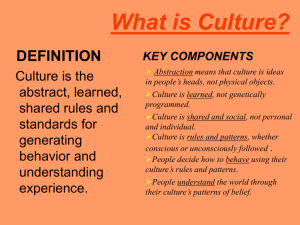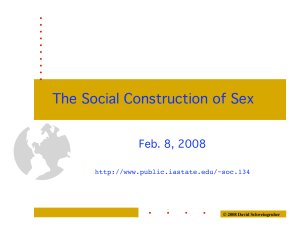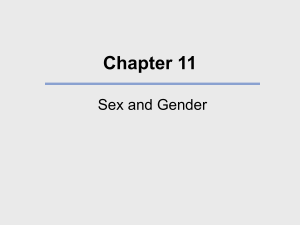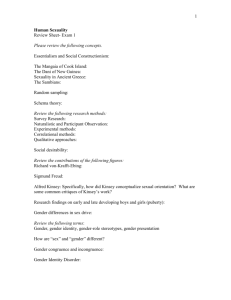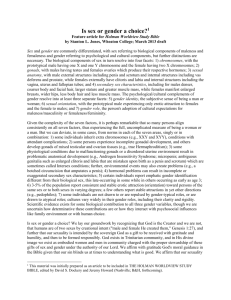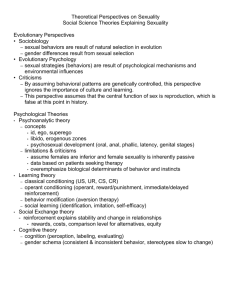Sexuality Matching Game
advertisement
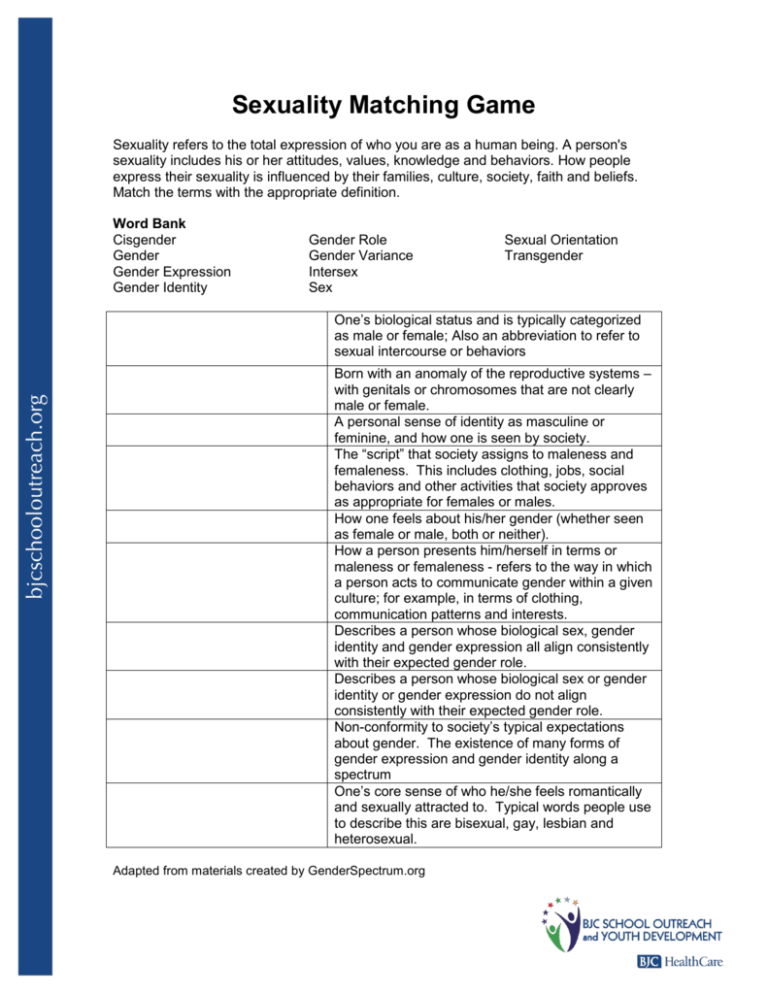
Sexuality Matching Game Sexuality refers to the total expression of who you are as a human being. A person's sexuality includes his or her attitudes, values, knowledge and behaviors. How people express their sexuality is influenced by their families, culture, society, faith and beliefs. Match the terms with the appropriate definition. Word Bank Cisgender Gender Gender Expression Gender Identity Gender Role Gender Variance Intersex Sex Sexual Orientation Transgender One’s biological status and is typically categorized as male or female; Also an abbreviation to refer to sexual intercourse or behaviors Born with an anomaly of the reproductive systems – with genitals or chromosomes that are not clearly male or female. A personal sense of identity as masculine or feminine, and how one is seen by society. The “script” that society assigns to maleness and femaleness. This includes clothing, jobs, social behaviors and other activities that society approves as appropriate for females or males. How one feels about his/her gender (whether seen as female or male, both or neither). How a person presents him/herself in terms or maleness or femaleness - refers to the way in which a person acts to communicate gender within a given culture; for example, in terms of clothing, communication patterns and interests. Describes a person whose biological sex, gender identity and gender expression all align consistently with their expected gender role. Describes a person whose biological sex or gender identity or gender expression do not align consistently with their expected gender role. Non-conformity to society’s typical expectations about gender. The existence of many forms of gender expression and gender identity along a spectrum One’s core sense of who he/she feels romantically and sexually attracted to. Typical words people use to describe this are bisexual, gay, lesbian and heterosexual. Adapted from materials created by GenderSpectrum.org Facilitator Instructions: After completing the matching activity, explore student’s level of experience and perspectives involving the various topics. As we develop, we gain understanding of our preferences: what food we like, which activities make us happy, and also which traits we find most appealing in others. 1. What have you learned from your family, school, faith community and peers about sexuality? Family: School: Faith community: Peers: 2. How many of these terms are you familiar with? 3. How does understanding sexuality help us better appreciate ourselves and others? Human sexuality has many intricate parts. Because no two people are the same, it is important to recognize that people identity differently. Understanding these terms helps in dispelling myths, challenging stereotypes, and expressing the idea that everyone deserves respect for their gender, ethnicity, religion, and sexual identity. Sexuality Matching Game Answer Key Sex Intersex Gender Gender Role Gender Identity Gender Expression Cisgender Transgender Gender Variance Sexual Orientation One’s biological status and is typically categorized as male or female; Also an abbreviation to refer to sexual intercourse or behaviors Born with an anomaly of the reproductive systems – with genitals or chromosomes that are not clearly male or female. A personal sense of identity as masculine or feminine, and how one is seen by society. The “script” that society assigns to maleness and femaleness. This includes clothing, jobs, social behaviors and other activities that society approves as appropriate for females or males. How one feels about his/her gender (whether seen as female or male, both or neither). How a person presents him/herself in terms or maleness or femaleness - refers to the way in which a person acts to communicate gender within a given culture; for example, in terms of clothing, communication patterns and interests. Describes a person whose biological sex, gender identity and gender expression all align consistently with their expected gender role. Describes a person whose biological sex or gender identity or gender expression do not align consistently with their expected gender role. Non-conformity to society’s typical expectations about gender. The existence of many forms of gender expression and gender identity along a spectrum One’s core sense of who he/she feels romantically and sexually attracted to. Typical words people use to describe this are bisexual, gay, lesbian and heterosexual. Adapted from materials created by GenderSpectrum.org
